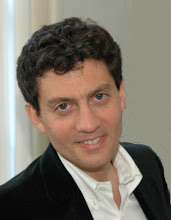
Flexing Your Business Storytelling Muscles with Deliberate Practices
Collaborating with other story practitioners is a special treat. When Shawn Callahan and I of Anecdote regroup to share our latest ideas it's always stimulating. Wish it was easier to reveal all the behind the scenes conversations and work that go into pulling together a session.
Business storytelling is really more than a trend. People are hungry for connections whether it be in the workplace or even in their personal relationship. "The shortest distance between two people is a story" (you can quote me on that one :). While we're all natural storytellers there still needs to be purposeful attention and effort made to tap into "the natural power of story" (you can quote Shawn on that one :).
There's some good news. Since we're involved in various degrees of storytelling/storylistening/story triggering all the time we don't need to start from scratch and put in the 10,000+ hours of practice Malcom Gladwell suggests we need for mastery.
I've developed some specific practices, tools, and techniques to help people gain better access to their innate capabilities. Among other things, I have research/evidence based model that identifies nine story-based communication skills, an assessment instrument, book of self-development exercises, group process activities, and organizational interventions I use with clients.
If you haven't had a chance to checkout Anecdote's website with its new face lift be sure to pour through the rich coffers of their blog and wonderful collection of ready to go stories for business in their Story Finder Tool.
I digress let me share with you what we did during our August complimentary webinar...
Have you wondered why you are not making better progress at becoming a storyteller at work? Are you finding it difficult to find good stories to tell? Are your stories relevant to your colleagues or do they look at you blankly wondering what planet you're on?Here's a recording of the webinar...
Spend an hour with master business story practitioners Shawn Callahan of Anecdote and Terrence Gargiulo of MAKINGSTORIES.net as they share deliberate practices you can employ today to be a better storyteller.
This session was conducted as conversation with participants. So there are lots of wonderful ideas and experiences shared by all. Be sure to add your voice by chiming in with your ideas, experiences, and of course stories below.
WEBINAR: It's a Marathon Not Magic: Deliberate Practice Approach to Developing Business Storytelling Skills from Terrence Gargiulo on Vimeo.
Now it's your turn, please take a moment and add your voice to the conversation...

